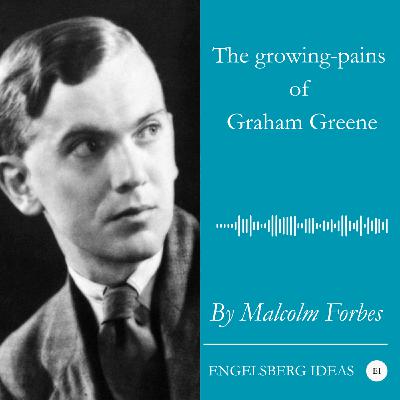Discover The EI Podcast
The EI Podcast

The EI Podcast
Author: Engelsberg Ideas
Subscribed: 168Played: 6,451Subscribe
Share
© Copyright 2020. Engelsberg Ideas - All Rights Reserved.
Description
The EI Podcast brings you weekly conversations and audio essays from leading writers, thinkers and historians. Hosted by Alastair Benn and Paul Lay. Find the EI Podcast on Apple Podcasts, Spotify, or search The EI Podcast wherever you get your podcasts.
358 Episodes
Reverse
Gordon Corera contends that to truly understand Vladimir Putin, you have to understand the phenomenon of Chekism. Read by Leighton Pugh.Image: Vladimir Putin's East German Stasi identification card issued while he worked as a KGB agent in Dresden in 1985. Credit: Pictorial Press Ltd
Christopher Harding on the birth of Tokyo. Read by Leighton Pugh.Image: A woodblock print by Utagawa Hiroshige. From One Hundred Famous Views of Edo, 1856. Credit: incamerastock / Alamy Stock Photo
Emma Smith, Professor of Shakespeare Studies at Oxford University, explores Hamlet and its rich critical history with EI’s Alastair Benn and Paul Lay.Image: Laurence Olivier plays Hamlet in 1948. Credit: Masheter Movie Archive
Rana Mitter explores Xi Jinping’s personal and ideological mindset in conversation with EI’s Jack Dickens.Image: Then Vice President Xi Jinping makes an address in preparation for the 2008 Olympics. Credit: Imago
Ioannes Chountis de Fabbri on reading as an antidote to the restless spirit of the industrial age. Read by Leighton Pugh.Image: Edvard Munch's painting of Friedrich Nietzsche. Credit: Darling Archive / Alamy Stock Photo
Jonathan Sumption surveys the last generation of spies before the creation of Europe's professional intelligence services. Read by Leighton Pugh.Image: King Charles VI of France prepares for war. Credit: Science History Images / Alamy Stock Photo
EI's Jack Dickens is joined by Charlie Laderman, associate professor at the University of Florida’s Hamilton Center, to discuss how the United States’ hemispheric ambitions emerged from great-power competition – and why the Monroe Doctrine still matters.Image: A satirical cartoon lampooning the expansion of the Monroe Doctrine. Credit: Photo 12
Alastair Benn is joined by Leo Damrosch, author of Storyteller: The Life of Robert Louis Stevenson, to explore the life and legacy of the celebrated Scottish writer, including one of his most enduring literary achievements, Strange Case of Dr Jekyll and Mr Hyde.Image: 'Robert Louis Stevenson' by John Singer Sargent, 1885. Credit: IanDagnall Computing
EI's Paul Lay is joined by Helen Thompson to discuss US–China rivalry, the growing importance of the Western Hemisphere in geopolitics, and the inherent instability of a multipolar world.
Image: Russian President Vladimir Putin speaks to Chinese President Xi Jinping at the Victory Parade marking the 70th anniversary of the surrender of Nazi Germany in the Second World War. Credit: Associated Press
EI's Paul Lay is joined by neuroscientist Nicholas Wright to discuss how the brain shapes war, and how war shapes the brain.Image: The brain as a weapon of war. Credit: fStop Images GmbH
Graeme Thompson on the fall of a liberal world order. Read by Leighton Pugh.
Image: 'Taming the British Lion'. Puck magazine, 1888. Credit: Historical Images Archive
John Tasioulas examines how a classical conception of democracy – distinct from liberal democracy – may offer the resources needed to meet the challenges posed by Artificial Intelligence. Read by Leighton Pugh.
Image: Rudolph Müller, View of the Acropolis from the Pynx (1863). Credit: Eraza Collection
Gerald Warner on the origins of a 'black legend' designed to discredit the once-flourishing Bourbon Kingdom of the Two Sicilies. Read by Leighton Pugh.
Image: A painting displaying the splendour of the Neapolitan fleet. Credit: The Picture Art Collection
EI's Paul Lay is joined by technology analyst Dan Wang to discuss how China has engineered its way to global power status. Image: New high-rise buildings in China. Credit: ton koene
Bill Emmott profiles Lafcadio Hearn, the Anglo-Irish-Greek foreign correspondent who made Japan his home. Read by Leighton Pugh.
Image: Lafcadio Hearn photographed with his wife, Setsuko Koizumi, and their son. Credit: GRANGER - Historical Picture Archive / Alamy Stock Photo
Bestselling author Andrew Ross Sorkin discusses his new book, 1929: The Inside Story of The Greatest Crash in Wall Street History, with EI's Iain Martin.Image: The Wall Street financial crash of 1929, with a city businessman speculator trying to sell his car for $100 cash, having lost all on the stock market. Credit: Alamy/ Shawshots.
Historian Damian Valdez on international order's 19th-century origins. Read by Leighton Pugh.
Image: Mexican general Agustín de Iturbide rides through a ceremonial arch to welcoming officials in Mexico City on September 27, 1821, after decisively winning independence for Mexico. Credit: Album / Alamy Stock Photo
Critic Malcolm Forbes investigates Graham Greene's troubled childhood. Read by Leighton Pugh.
Image: Graham Greene in 1940. Credit: Everett Collection Historical / Alamy Stock Photo
Historian Luka Ivan Jukic explores how Stalin hijacked the Slavic cause to forge the Soviet Empire. Read by Leighton Pugh.
Image: A poster celebrating Stalin at the Russian State Library, Moscow. Credit: Album / Alamy Stock Photo
Aaron MacLean, host of the School of War podcast, on AI's threat to the life of the mind. Read by Leighton Pugh.
Image: The Library Hall of the Upper Lusatian Library of Sciences. Credit: Petr Svarc / Alamy Stock Photo

























A very interesting and thought provoking series of podcasts. I also enjoy the excellent narration.
why do Americans persist with the idea that their 2 months of incompetent input at the end of the great war is what defeated the Germans. just deluded and bizarre.
what an awful monologue. misuse of statistics. misinterpretation of speeches. select I've quoting. nothing at all to say on China. useless. make use of your time elsewhere than listening to that. take care.